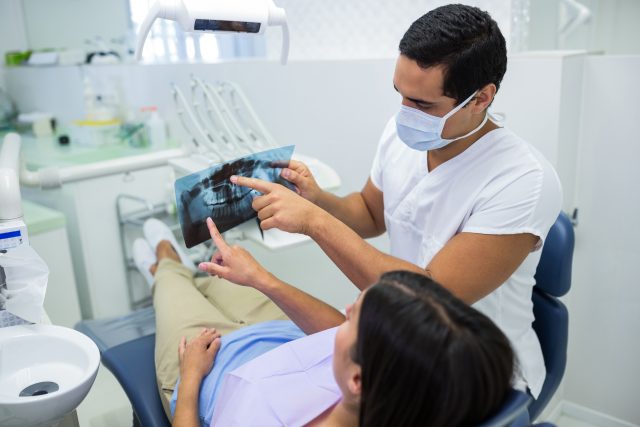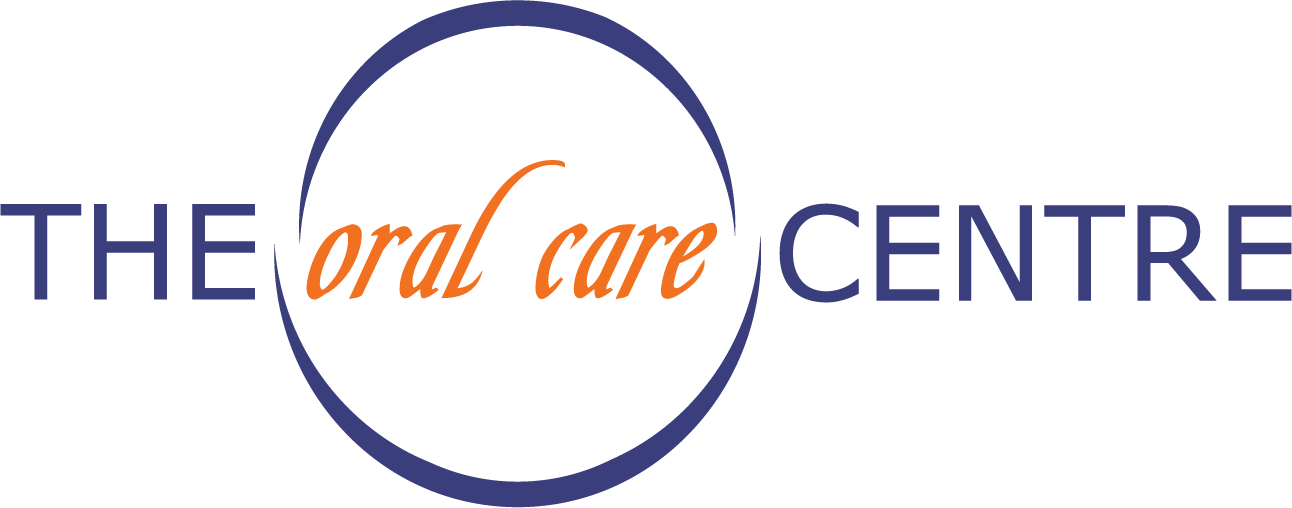Data from the World Health Organization reveal that a considerable part of the population experiences untreated cavities, both in deciduous teeth among children aged 1-9 years and permanent teeth in individuals over five years old. The prevalence of severe periodontal disease among those aged 15 and above further underscores the importance of oral health vigilance.
The good news is, the Singapore government has taken steps to address these concerns. This includes the presence of dedicated staff at the Ministry of Health working on oral health surveillance, and ensuring the availability of procedures for detecting, managing, and treating oral diseases in primary care facilities within the public health sector.
Furthermore, trusted private clinics are also highly capable of attending to the public’s dental health problems.
Understanding Oral Disease in Singapore and Common Toothache Causes
At the core, toothaches primarily happen when the nerve in the tooth’s root becomes irritated. But, what causes this irritation? Below are the two most common oral diseases in Singapore and other conditions that are known toothache causes:
Tooth Decay or Cavities
The leading cause of toothaches is tooth decay. It begins when the enamel, the outer protective layer of the tooth, is compromised, allowing bacteria to infect the inner layers of the tooth. The bacteria may eventually reach the nerve, causing inflammation and pain. Left untreated, cavities can lead to infection around the tooth.
In a 2019 study, authorities found that 34.8% of Singaporeans aged 21 and up have untreated dental caries.
Gum Disease
Gum disease, characterized by swollen, bleeding gums, is also among the known toothache causes. Advanced gum disease, or periodontitis, affects the supporting tissues of the teeth, potentially leading to gum recession and tooth loss.
The same report noted that 15.7% and 41.2% of Singaporeans experienced moderate and severe periodontitis, respectively. Gum disease is more common in older adults.
The following may not be oral diseases, but they are still common causes of toothache:
Tooth Fracture
A tooth fracture can occur from trauma, grinding, or biting on hard objects. These fractures can lead to toothache, sensitivity, and swelling.
Damaged Fillings or Dental Restorations
Over time, fillings and restorations can wear down or become damaged, exposing sensitive parts of the tooth and leading to discomfort or pain.
Impacted Teeth
Wisdom teeth, or third molars, often emerge during late adolescence or early adulthood. If there is insufficient space in the jaw, these teeth can become impacted, leading to significant pain and discomfort.
Tooth Pain Relief: What First Aid Steps Can You Take?
The most important thing to do when you have a toothache is to visit the dentist. If that’s not possible at the moment, you may also take the following tooth pain relief steps:
Take over-the-counter pain relievers
Medications such as Paracetamol and Ibuprofen can temporarily alleviate pain but remember, they are not a long-term solution and some medication can cause allergic reactions.
Apply cold compress
Applying a cold compress to the cheek can reduce swelling and numb the area, offering temporary relief.
Rinse with saltwater
A natural disinfectant, saltwater gargle can help to loosen food particles and debris that may be trapped in between teeth.
Avoid certain foods
Stay away from overly hot or cold foods that can aggravate the pain.
If the pain persists or if you experience severe symptoms, seeking emergency dental care is essential to address the underlying cause and prevent further complications.

Emergency Dental Care: What Symptoms Warrant An Urgent Dental Visit
Some toothache causes can wait for a day or so, but some symptoms require emergency dental care. These symptoms include:
- Severe toothache: An unbearable toothache not relieved by over-the-counter pain relief medication may signal an infection or abscess requiring urgent attention to prevent further complications.
- Swollen jaw or mouth: Swelling in these areas, particularly when accompanied by pain, could indicate an infection such as an abscessed tooth, which can lead to more significant health issues if left untreated.
- Broken, chipped, or knocked-out tooth: Prompt treatment can sometimes save a knocked-out tooth and prevent further damage or infection in cases of broken or chipped teeth.
- Lost filling or crown: A lost filling or crown needs quick action to avoid sensitivity or further damage to the tooth.
- Signs of infection: Symptoms like fever, swelling, or a persistent bad taste could indicate an infection, necessitating immediate dental care.
- Uncontrollable bleeding: Bleeding that cannot be managed at home is a clear emergency sign, possibly resulting from trauma or a serious underlying medical condition needing immediate care.
Oral Health Tips: Preventing Common Oral Diseases and Toothache Causes
Adopting a proactive approach to oral health can significantly reduce the risk of toothaches and other dental issues. Here are some oral health tips and measures to keep in mind:
- Regular dental checkups: Regular visits to the dentist for checkups and cleanings are crucial for maintaining oral health and preventing diseases.
- Proper brushing and flossing: Brushing twice a day and flossing daily can help remove plaque and prevent tooth decay and gum disease.
- Use fluoride toothpaste: Fluoride helps to strengthen tooth enamel and prevent decay.
- Limit sugary foods and beverages: Reducing the intake of sugary foods and drinks can decrease the risk of cavities.
- Don’t ignore early signs: If you notice any signs of oral health issues, such as tooth sensitivity, bleeding gums, or persistent bad breath, consult a dentist promptly.
Remember: preventing toothache causes and oral diseases isn’t just about avoiding pain; it’s about preserving your overall health and well-being. Hence, visiting the dentist is of utmost importance because they can provide you with information on the state of your oral and dental health and offer necessary solutions to your concerns.
Treatment for Toothache and Oral Diseases
The treatment for toothache depends on the cause or oral disease the patient is experiencing. For instance, the dentist may recommend dental fillings for cavities. For a cracked tooth, they may suggest a filling or a crown. If the patient has gum disease, they may prescribe some antibiotics first before moving on to other strategies, such as scaling. For impacted teeth, wisdom tooth removal may be suggested.
That’s why if you have dental and oral care concerns, remember to prioritize paying a visit to the dentist.
Key Takeaways
In Singapore, the most common oral diseases are dental caries and gum disease. These two diseases are notorious toothache causes, along with tooth fractures, impacted teeth, and damaged dental fillings. While you can take first aid measures for toothache, please keep in mind that the most important step to take is to visit the dentist to accurately identify the cause and receive the appropriate treatment.
References
Oral Health Country Profile, https://cdn.who.int/media/docs/default-source/country-profiles/oral-health/oral-health-sgp-2022-country-profile.pdf?sfvrsn=35f765e7_5&download=true, Accessed Feb 25, 2024
Tooth Decay, https://www.nidcr.nih.gov/health-info/tooth-decay#:~:text=8%20%2D%20Related%20Publications-,Overview,infection%2C%20and%20even%20tooth%20loss. Accessed Feb 25, 2024
Toothache, https://www.nhsinform.scot/illnesses-and-conditions/mouth/toothache/ Accessed Feb 25, 2024
Fractured Tooth (Cracked Tooth), https://my.clevelandclinic.org/health/diseases/21628-fractured-tooth-cracked-tooth Accessed Feb 25, 2024
The oral health landscape in Singapore: A commentary on key features, challenges and future policies, https://pubmed.ncbi.nlm.nih.gov/37971154/#:~:text=In%202019%2C%20a%20national%20adult,moderate%20and%20severe%20periodontitis%2C%20respectively. Accessed Feb 25, 2024
Toothache: First aid, https://www.mayoclinic.org/first-aid/first-aid-toothache/basics/art-20056628
Maintaining healthy teeth and gums, https://www.singhealth.com.sg/news/singapore-health/maintaining-healthy-teeth-and-gums Accessed Feb 25, 2024
Dental Emergencies, https://my.clevelandclinic.org/health/articles/11368–dental-emergencies-what-to-do Accessed Feb 25, 2024

